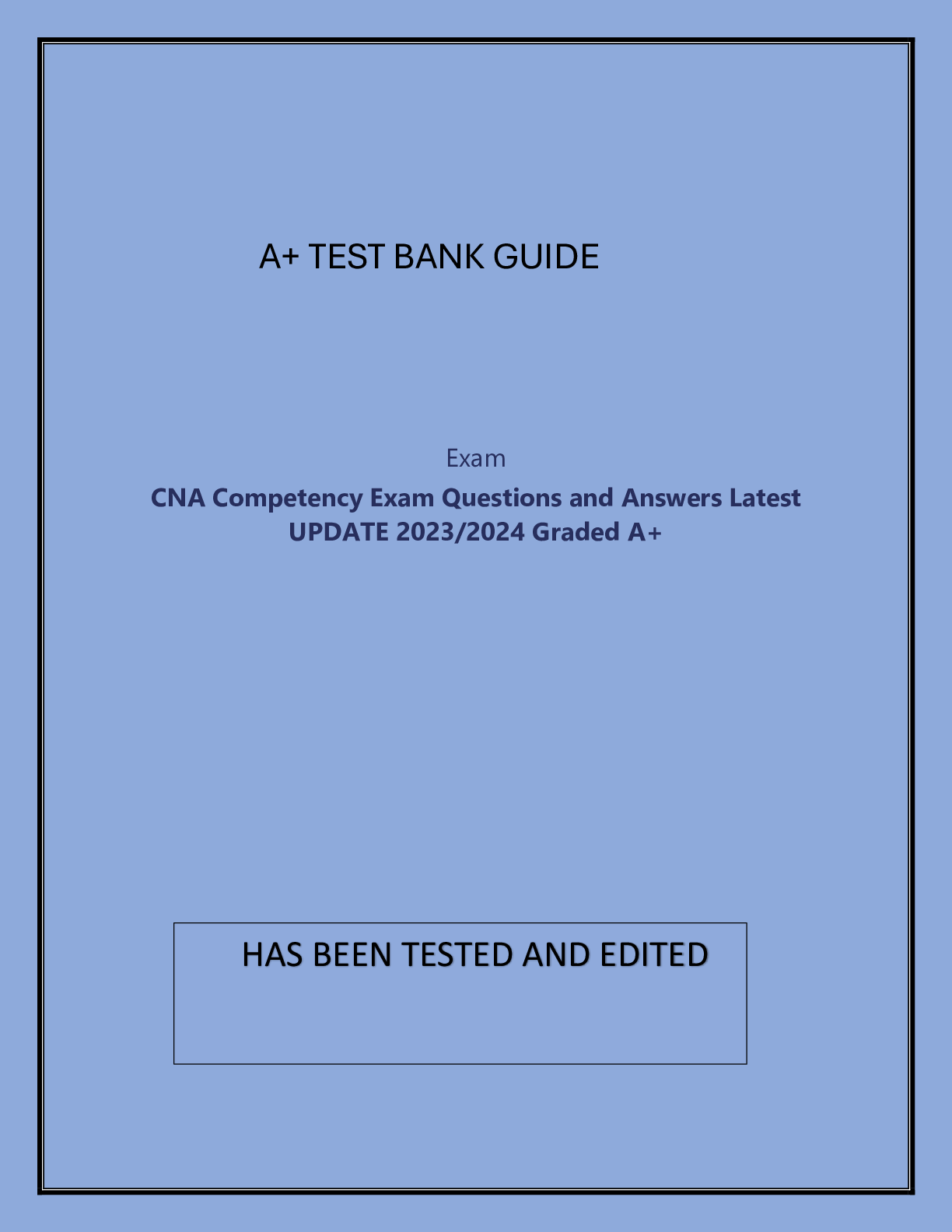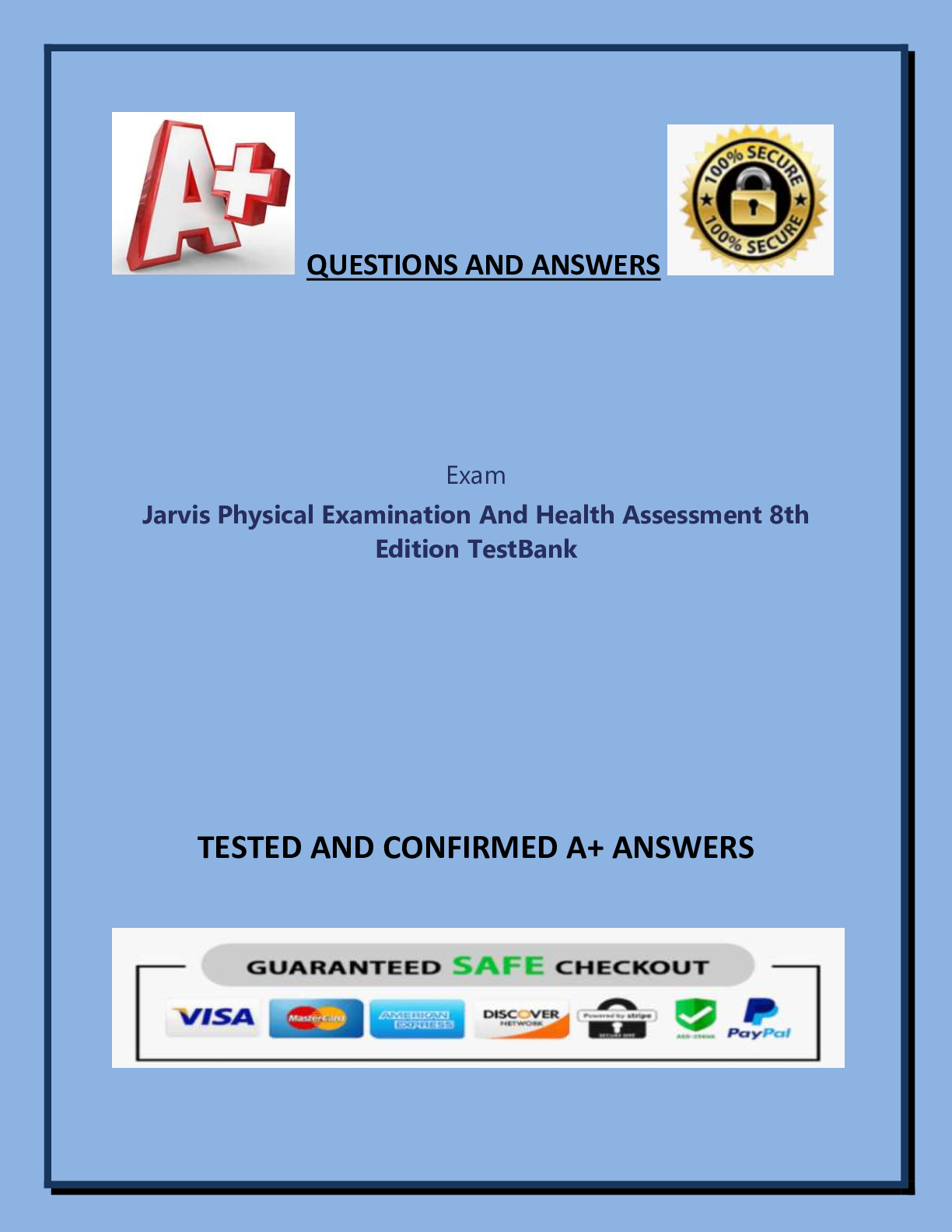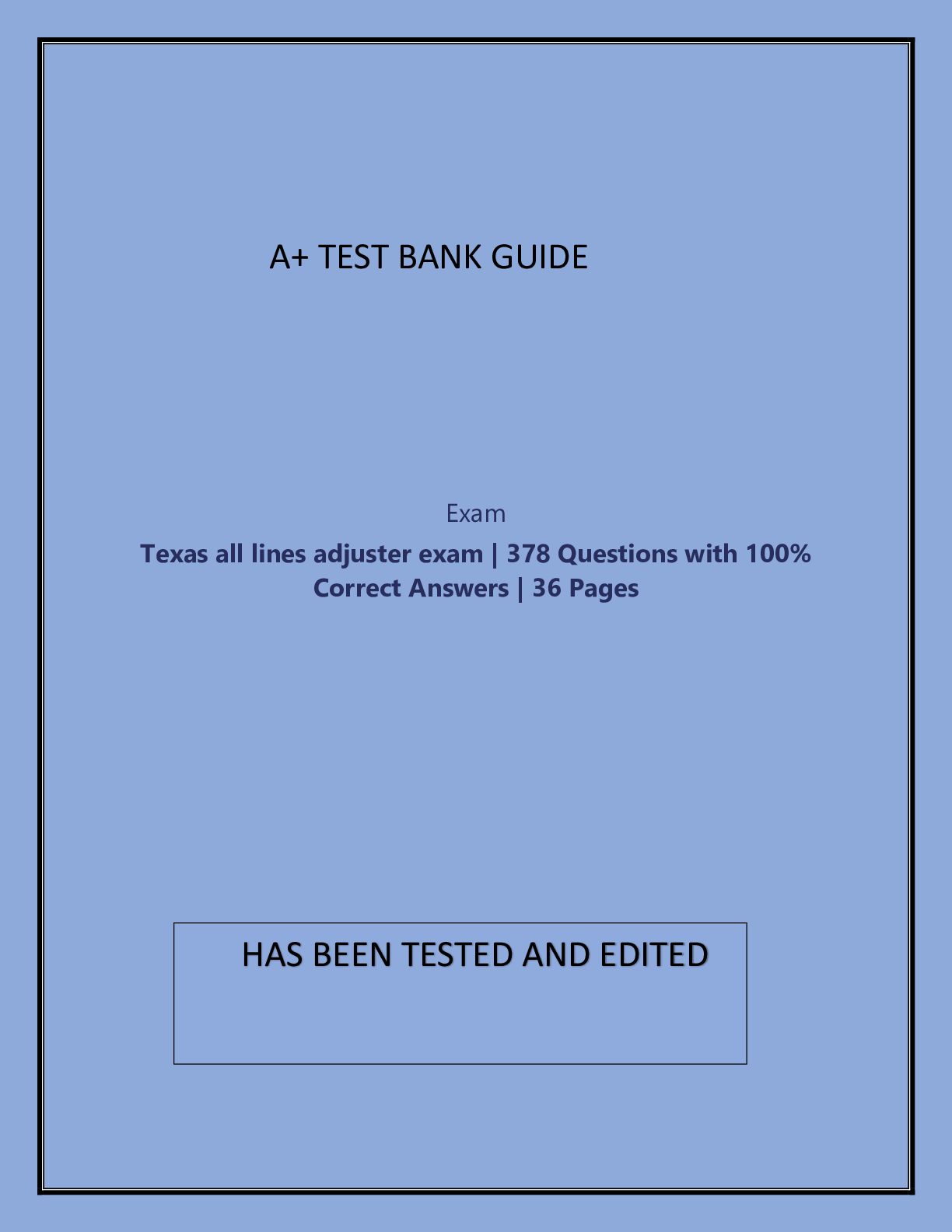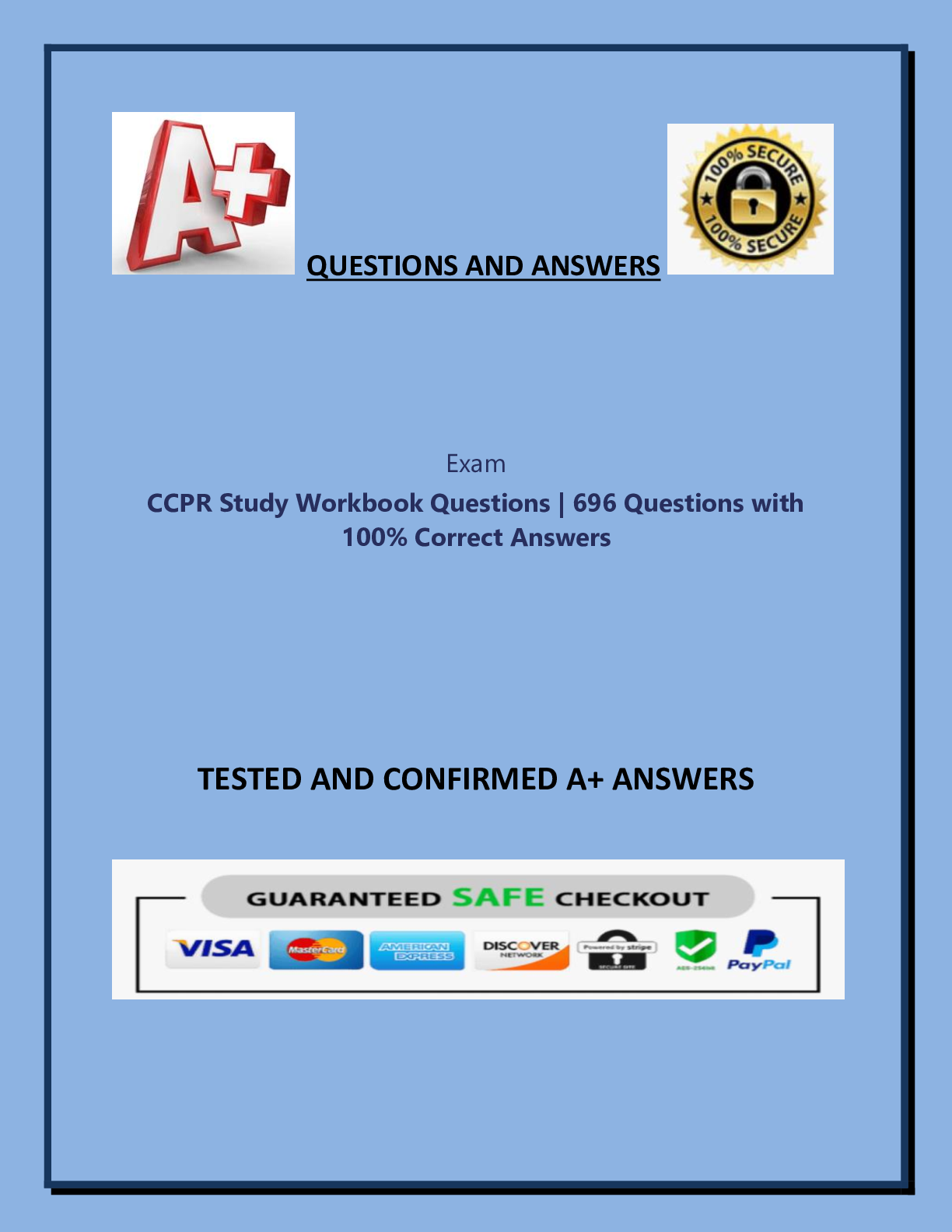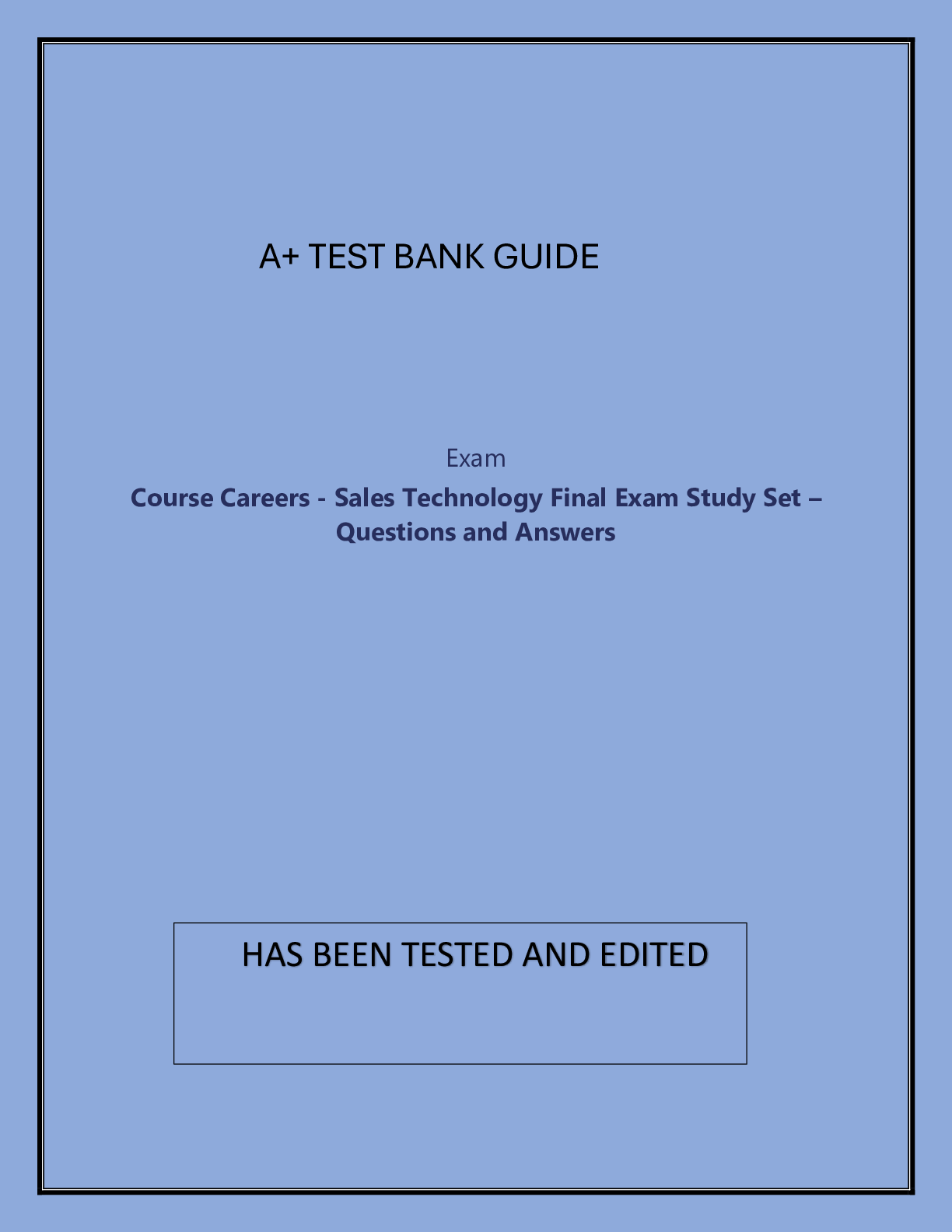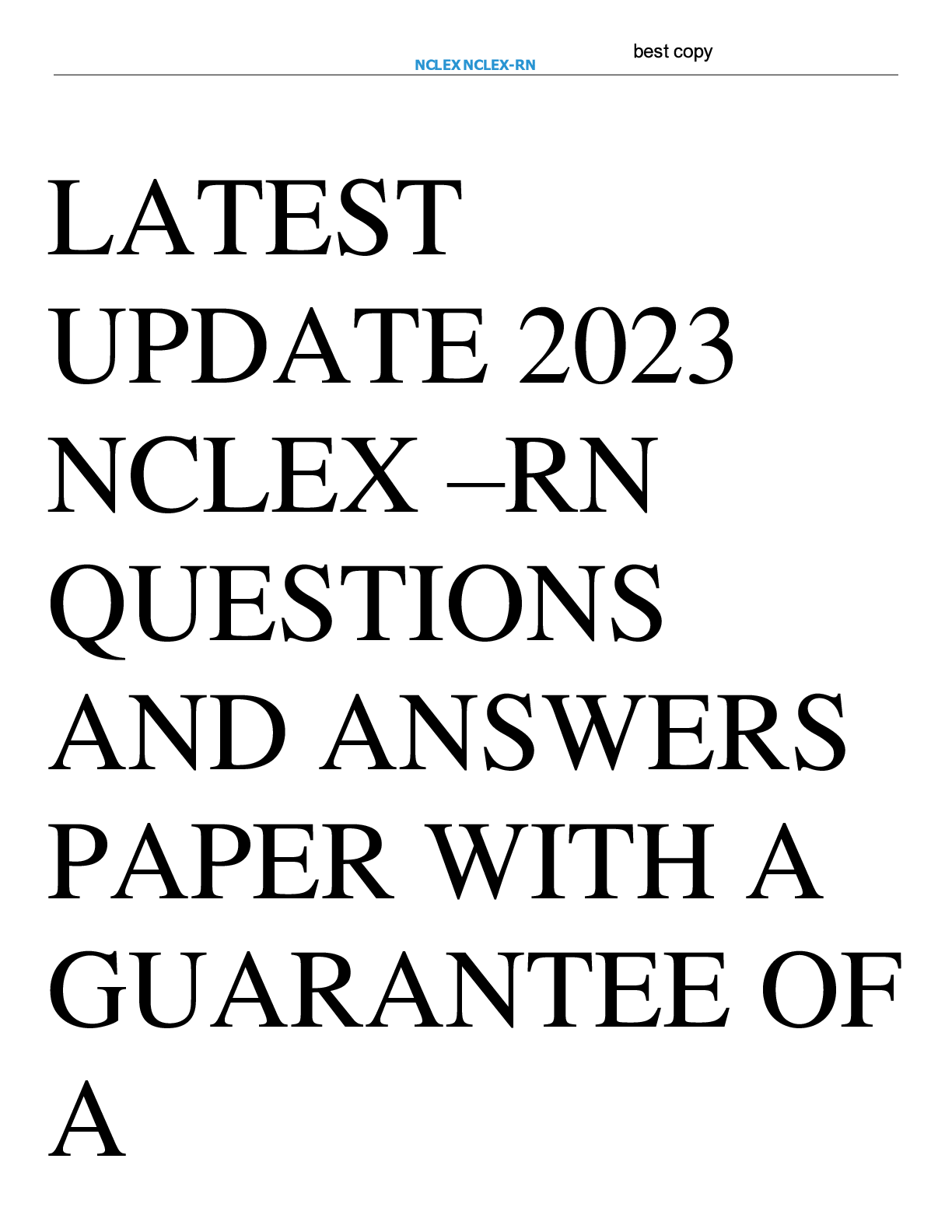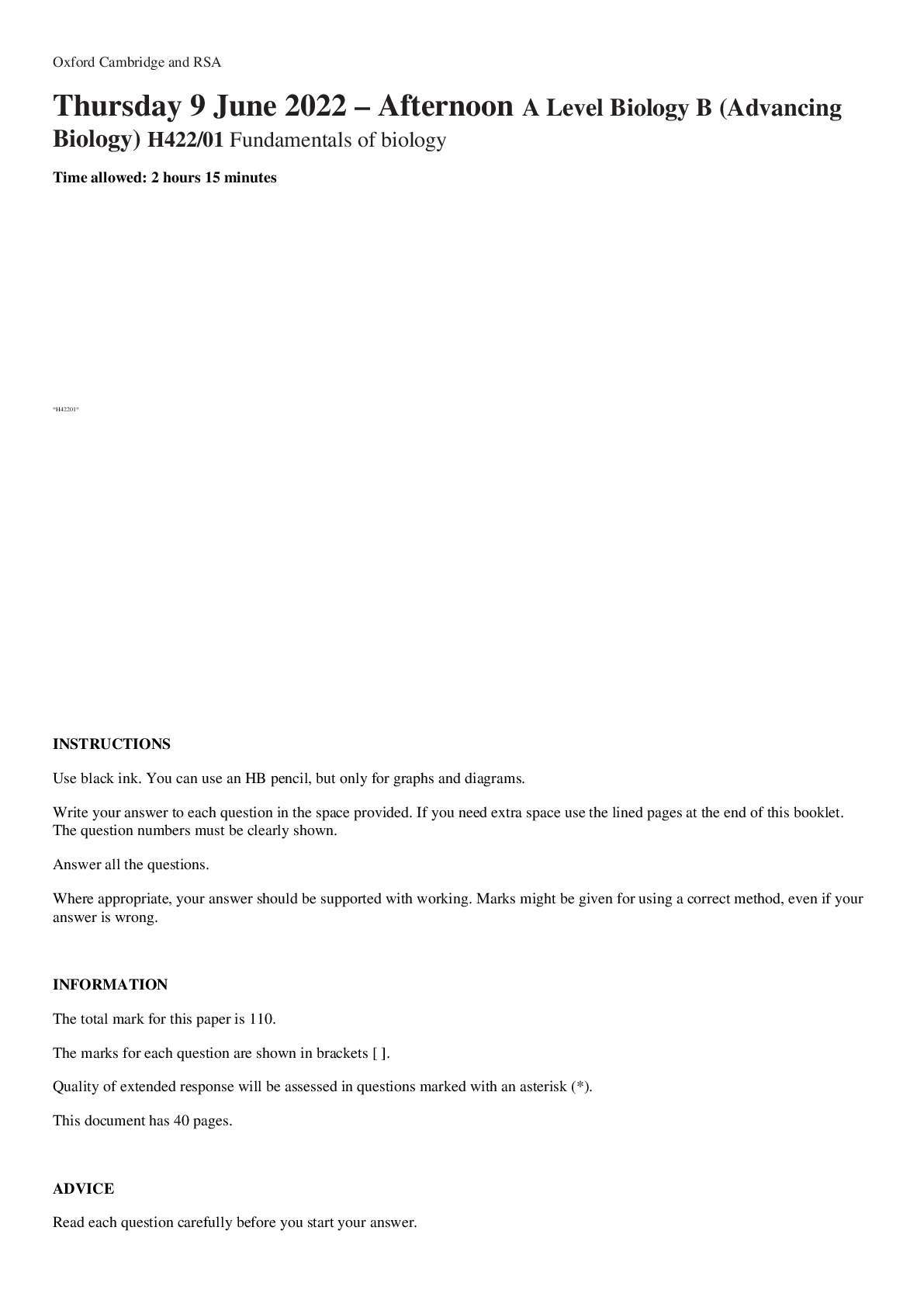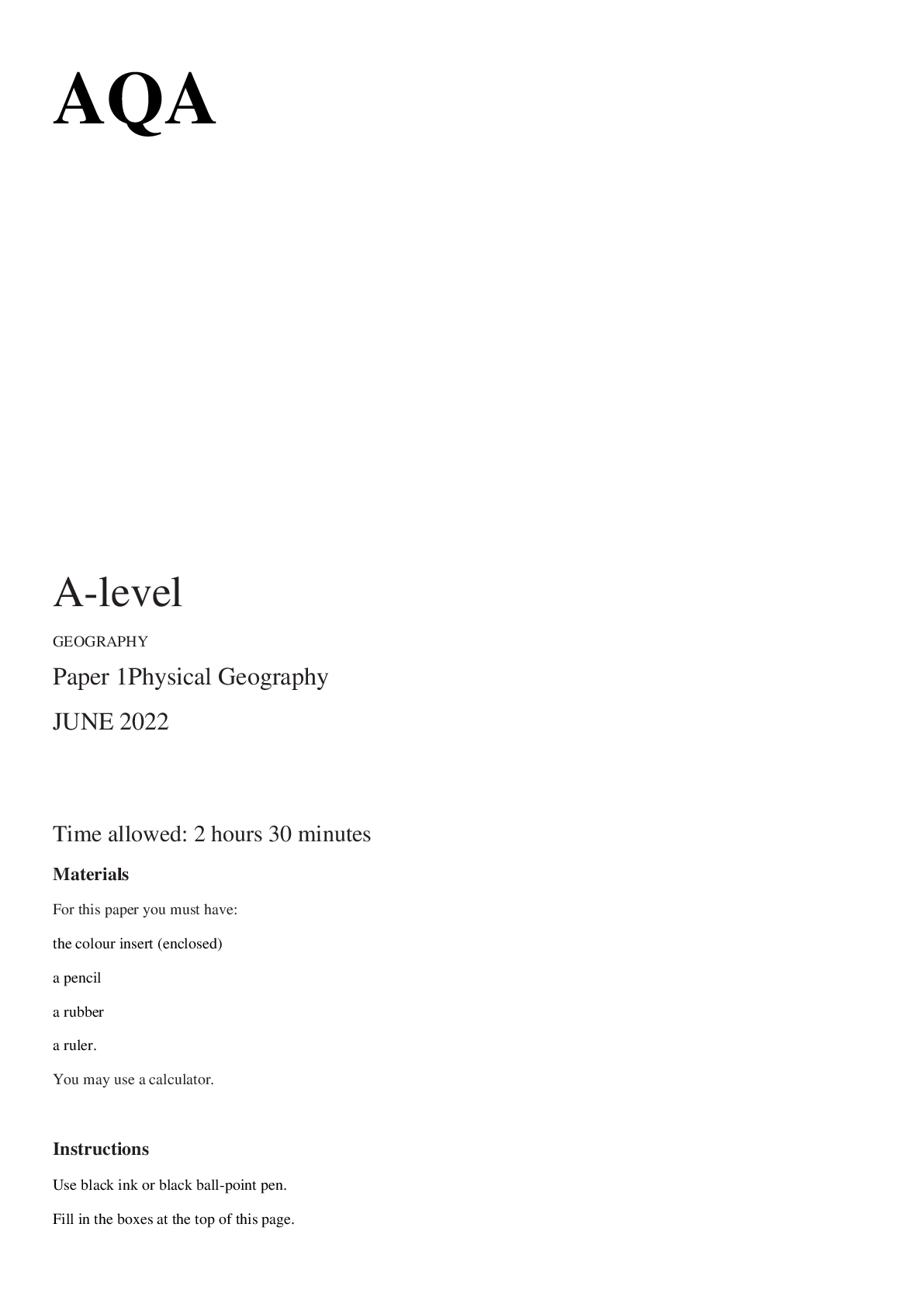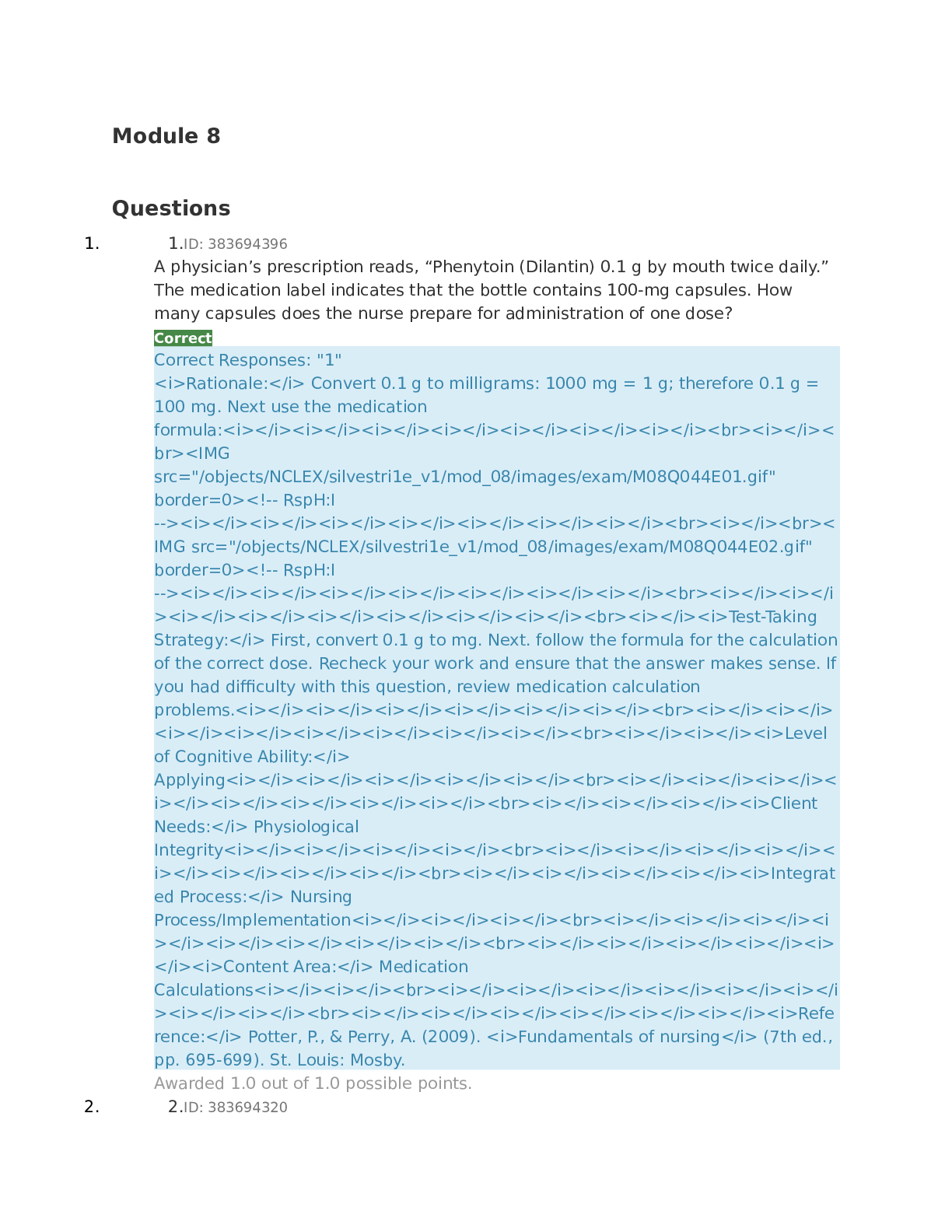History > A Level Question Paper > IRM1501 Assignment 2 (COMPLETE ANSWERS.pdf (All)
IRM1501 Assignment 2 (COMPLETE ANSWERS.pdf
Document Content and Description Below
QUESTION 1 With relevant decided cases, discuss transformative constitutionalism and identify three basic principles of transformativeconstitutionalism. (6 MARKS) 1. Case: Grootboom v Oostenberg Mun... icipality (2000) (South Africa): • Principle: Socio-economic rights as justiciable. The Grootboom case in South Africa is often cited as an example of transformative constitutionalism. The Constitutional Court held that the right to have access to adequate housing, as enshrined in the South African Constitution, is justiciable. The court emphasized the state's positive duty to take reasonable legislative and other measures within its available resources to ensure the progressive realization of the right to housing. 2. Case: Mazibuko v City of Johannesburg (2010) (South Africa): • Principle: Participatory democracy and access to basic services. In this case, the court addressed the issue of prepaid water meters affecting access to water for low-income households. The court stressed the importance of participatory democracy, emphasizing that local government decisions affecting access to basic services must involve meaningful consultation with affected communities. This reflects the transformative principle of ensuring marginalized groups are actively involved in decision-making processes. 3. Case: Kesavananda Bharati v State of Kerala (1973) (India): • Principle: Basic structure doctrine and the limitation of constitutional amendments. While not directly associated with transformative constitutionalism, the Kesavananda Bharati case in India introduced the concept of the "basic These cases illustrate three basic principles of transformative constitutionalism: the justiciability of socio-economic rights, the importance of participatory democracy in decision-making, and the safeguarding of core constitutional principles through limitations on amendments. Transformative constitutionalism aims to promote social justice, equality, and human dignity through the interpretation and application of constitutional norms. Transformative constitutionalism refers to an approach to constitutional interpretation and application that seeks to advance the transformation of society by addressing historical injustices, promoting social inclusion, and advancing substantive equality. It is particularly relevant in post-colonial and post-apartheid contexts, where there is a need to redress past injustices and build a more inclusive and equitable society. Here are three basic principles of transformative constitutionalism, illustrated with relevant decided cases: Answer 2 1. Historical Justice and Redress: Transformative constitutionalism emphasizes the importance of addressing historical injustices and ensuring redress for past wrongs. One landmark case illustrating this principle is Minister of Finance v Van Heerden (2004), heard by the Constitutional Court of South Africa. In this case, the court held that the government's policy of excluding domestic workers from the Compensation for Occupational Injuries and Diseases Act was unconstitutional because it perpetuated historical discrimination against black women, who were disproportionately employed as domestic workers during apartheid. The decision highlighted the importance of redressing past injustices in building a more inclusive society. 2. Substantive Equality: Transformative constitutionalism prioritizes substantive equality over formal equality. This means that the focus is not merely on treating everyone the same, but on addressing underlying inequalities and ensuring that everyone has equal opportunities and outcomes. An example of this principle can be found in Government of the Republic of South Africa v Grootboom (2000). In this case, the Constitutional Court held that the government's failure to provide adequate housing to indigent people violated their constitutional rights to dignity and equality. The court emphasized that substantive equality requires proactive measures to address poverty and inequality, rather than just formal legal equality. structure doctrine." This principle holds that while the constitution can be amended, the amendments cannot alter its basic structure or core principles. This limitation helps preserve fundamental rights and principles, preventing arbitrary changes that could undermine the transformative goals of the constitution [Show More]
Last updated: 1 month ago
Preview 1 out of 5 pages

Reviews( 0 )
Document information
Connected school, study & course
About the document
Uploaded On
Apr 07, 2024
Number of pages
5
Written in
Additional information
This document has been written for:
Uploaded
Apr 07, 2024
Downloads
0
Views
8

